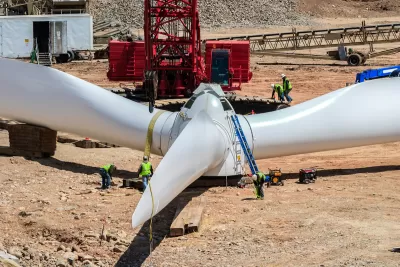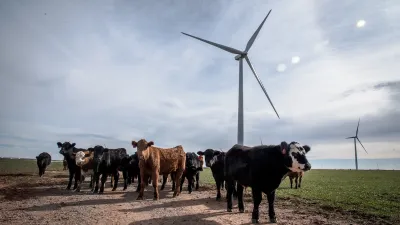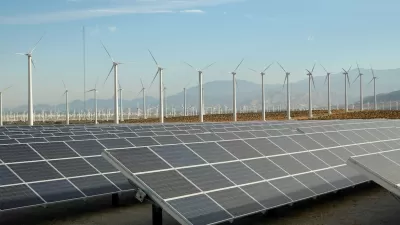To meet ambitious climate and decarbonization goals, some states are barring local governments from restricting wind and solar development.

According to an Associated Press article in the U.S. News & World Report, over a dozen U.S. states have passed laws that bar local jurisdictions from blocking renewable energy projects with zoning restrictions in response to a number of challenges from local groups that have blocked or delayed renewable projects.
In Michigan, over two dozen projects were derailed by local zoning rules. Around the country, at least 228 jurisdictions have imposed rules that restrict renewable energy development. In some cases, the concerns are environmental, while others center on the potential loss of farmland. Now, Michigan law still requires developers to go through the local process, but if denied, the decision can be overturned by a state commission if the project meets certain requirements.
Dan Scripps, chair of Michigan’s Public Service Commission, argues that renewable energy projects are vitally important to the entire state and can’t be limited by local concerns. States including Michigan require public utilities to transition away from fossil fuels by 2040 in alignment with federal goals.
FULL STORY: States With Big Climate Goals Strip Local Power to Block Green Projects

Trump Administration Could Effectively End Housing Voucher Program
Federal officials are eyeing major cuts to the Section 8 program that helps millions of low-income households pay rent.

Planetizen Federal Action Tracker
A weekly monitor of how Trump’s orders and actions are impacting planners and planning in America.

Ken Jennings Launches Transit Web Series
The Jeopardy champ wants you to ride public transit.

Rebuilding Smarter: How LA County Is Guiding Fire-Ravaged Communities Toward Resilience
Los Angeles County is leading a coordinated effort to help fire-impacted communities rebuild with resilience by providing recovery resources, promoting fire-wise design, and aligning reconstruction with broader sustainability and climate goals.

When Borders Blur: Regional Collaboration in Action
As regional challenges outgrow city boundaries, “When Borders Blur” explores how cross-jurisdictional collaboration can drive smarter, more resilient urban planning, sharing real-world lessons from thriving partnerships across North America.

Philadelphia Is Expanding its Network of Roundabouts
Roundabouts are widely shown to decrease traffic speed, reduce congestion, and improve efficiency.
Urban Design for Planners 1: Software Tools
This six-course series explores essential urban design concepts using open source software and equips planners with the tools they need to participate fully in the urban design process.
Planning for Universal Design
Learn the tools for implementing Universal Design in planning regulations.
Ada County Highway District
Clanton & Associates, Inc.
Jessamine County Fiscal Court
Institute for Housing and Urban Development Studies (IHS)
City of Grandview
Harvard GSD Executive Education
Toledo-Lucas County Plan Commissions
Salt Lake City
NYU Wagner Graduate School of Public Service





























